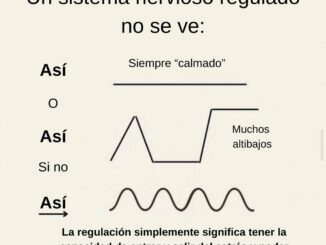Recently I had an OT session with a child who I’ve known for many years. They were unusually irritable and on-edge, and at one point they were so frustrated with what they were trying to do that they started to cry.
I asked if they needed help.
They said, “STOP ASKING ME QUESTIONS!”
I could recognize that this was not a good time for me to be touchy or be precious about how somebody spoke to me. I knew that I was fine and safe and not threatened by a small child’s emotions and especially not by their self-advocacy! I said, “Okay.”
This was still too much, though. They covered their ears and yelled, “I WANT TO HEAR YOUR VOICE NOT THAT MUCH!”
I sat by them quietly with my hands folded in my lap. When they looked at me, I simply nodded. Inside my head was compassion for what was going on that was making things extra hard for them today.
A few moments passed.
They looked at me and took their hands off their ears and said, “I am a little bit mad.”
I nodded again.
“I still like you,” they said, their voice breaking a little bit. “Are you sad?”
I wasn’t sad, but I was concerned and empathetic and wanted to figure out how to convey that in the fewest words since talking felt like so much to them right now. “More I just want to help if something’s wrong.”
When I reflected on this later with my coworker and close friend, she pointed out how differently that conversation could have gone—would have gone—with many, if not most, other adults. With an adult whose mindset was fixed in metrics of “respect” and “disrespect”, or an adult who felt they needed to grab power over a child. With an adult who only knew how to listen to a child’s literal word choices in their language rather than knowing how to listen for the underlying emotion.
I might have yelled back, “I’m just trying to help you!” Or, “You don’t get to talk to me that way!” Or, “Fine, sit there and cry and see if I care!” Or, “Too bad, you have to hear my voice because I’m the adult and you’re not!”
And they would have walked away from that knowing that I couldn’t be trusted with their overwhelming emotions. That they were alone in trying to cope with them, that they needed to stuff them down or they’d chase everyone away. Or that their “no” didn’t matter but an adult could override their “no” anytime they chose. Or that there were no adults who understood them and what they tried to say. Or that adults had the right to be disrespectful to *them*, but not vice versa, and then they’d carry that into adulthood and the way they someday treated children.
Instead they walked away knowing that even if they explain their needs clumsily, they are still worthy of respect and compassion. Instead they walked away knowing my room is a safe place to be. Instead they walked away able to explain how they felt.



